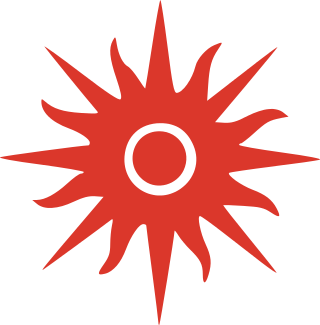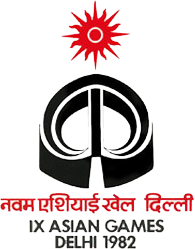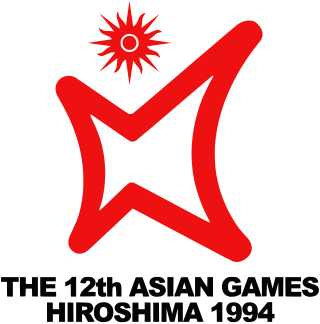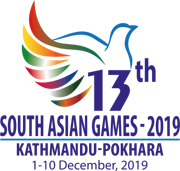Related Research Articles

The Asian Games, also known as Asiad, is a continental multi-sport event held every fourth year among athletes from all over Asia. The Games were regulated by the Asian Games Federation (AGF) from the first Games in New Delhi, India in 1951, until the 1978 Games. Since the 1982 Games, they have been organized by the Olympic Council of Asia (OCA), after the breakup of the Asian Games Federation. The Games are recognized by the International Olympic Committee (IOC) and are described as the second largest multi-sport event after the Olympic Games.

The Indian Olympic Association (IOA) or Indian Olympic Committee (IOC) is responsible for selecting athletes to represent India at the Olympic Games, Asian Games and other international sports competitions, and managing Indian teams at these events. It goes with the name of Team India. It also acts as the Indian Commonwealth Games Association, responsible for selecting athletes to represent India at the Commonwealth Games.

The 9th Asian Games were held from 19 November to 4 December 1982, in Delhi, India. 74 Asian and Asian Games records were broken at the event. This was also the first Asiad to be held under the aegis of the Olympic Council of Asia. Delhi joined Bangkok as the cities to host multiple editions of the Asian Games up to this point. Later, Jakarta and Doha would enter this group.

The 1994 Asian Games, also known as the XII Asiad and the 12th Asian Games, were held from October 2 to 16, 1994, in Hiroshima, Japan. The main theme of this edition was to promote peace and harmony among Asian nations. It was emphasized by the host because the venue was the site of the first atomic bomb attack 49 years earlier. Due to the 1991 Gulf War, Iraq was suspended from the games. The games debuted former republics of the Soviet Union: Kazakhstan, Kyrgyzstan, Tajikistan, Turkmenistan, and Uzbekistan.

The 2014 Asian Games, officially known as the 17th Asian Games and also known as Incheon 2014, was a pan-Asian multi-sport event held in Incheon, South Korea.

The National Games of India consist of various disciplines in which athletes from the different states of India participate against each other. The country's first few Olympic Games, now renamed as National Games, were held in North India (Delhi, Allahabad, Patiala, Madras, Calcutta and Bombay.

Indira Gandhi Athletic Stadium, also known as Sarusajai Stadium, is a multi-purpose stadium in Lokhra locality, Guwahati, Assam, India. Seating 21,600 people, it is the home ground of NorthEast United FC and is used for athletic events. The stadium was a host venue for the 2007 National Games of India, the 2016 South Asian Games, and the 2017 FIFA U-17 World Cup.
The 2003 Afro-Asian Games, officially known as the First Afro-Asian Games or I Afro-Asian Games and unofficially known as the Inaugural Afro-Asian Games, was a major international multi-sport event held in Hyderabad, India, from 24 October to 1 November 2003.

India is a member of the South Asian Zone of the Olympic Council of Asia (OCA), and has participated in the Asian Games since their inception in 1951. The Indian Olympic Association, established in 1927, and recognised in the same year by the International Olympic Committee, is the National Olympic Committee for India.

Randhir Singh is an Indian sports administrator and former sports shooter. Singh is one of India's most influential sports administrators and is noted for his wide-ranging international connections. He has held several positions in both Indian and international sports governing bodies, and also had a successful shooting career before retiring from the sport in 1994. Singh began his sports administration career in 1984, while he was still competing as a shooter.
Handball in India is controlled by the Handball Association India. It was founded by Jagat Singh Lohan from Rohtak, Haryana, who was an alumnus of YMCA College of Physical Education of Madras. His efforts during Munich Olympics helped in establishing HFI. The member states were Andhra Pradesh, Uttar Pradesh, Haryana, Vidharbha and Jammu and Kashmir. He was also elected as first secretary general of Handball Federation of India.

Athletes have competed as independent Olympians at the Olympic Games for various reasons, including political transition, international sanctions, suspensions of National Olympic Committees, and compassion. Independent athletes have come from North Macedonia, East Timor, South Sudan and Curaçao following geopolitical changes in the years before the Olympics, from the Federal Republic of Yugoslavia as a result of international sanctions, from India and Kuwait due to the suspensions of their National Olympic Committees, and from Russia for mass violations of anti-doping rules.

Three athletes from India qualified for the 2014 Winter Olympics in Sochi, Russia held between 7 and 23 February 2014. They initially entered the competition as Independent Olympic Participants due to the ongoing suspension of India's national olympic committee (NOC), the Indian Olympic Association since 2012. However, on 11 February 2014, the IOC reinstated India's NOC, allowing two athletes with pending events to represent India at the 2014 Winter Olympics instead. Shiva Keshavan, participating in Luge, was thus the only independent athlete at 2014 Winter Olympics.

The 2016 South Asian Games, officially the XII South Asian Games, is a major multi-sport event which took place from 5 February to 16 February 2016 in Guwahati and Shillong, India. A total of 2,672 athletes competed in 226 events over 22 sports. Indian Prime Minister Narendra Modi inaugurated the 2016 South Asian Games in Guwahati on 5 February 2016. India continued its dominance in the game's medal tally with a staggering 308 medals including 188 gold medals.
Badminton at the 2016 South Asian Games was held at the Multipurpose Hall SAI–SAG Centre, NEIGRIHMS Indoor Stadium under North-Eastern Hill University in Shillong, India from 6 February to 10 February 2016.
Squash at the 2016 South Asian Games were held in Guwahati, India from 10–15 February 2016.
Lenchu Kunzang is a Bhutanese sports shooter who competed at the 2016 Summer Olympics.

The 2019 South Asian Games, officially the XIII South Asian Games, was a major multi-sport event which was originally slated to be held from 9 to 18 March 2019 in Kathmandu and Pokhara, Nepal. However, the dates were postponed and the event was held from 1–10 December 2019, coincidentally at the same time as the 2019 Southeast Asian Games in the Philippines. The new dates were confirmed at the South Asian Olympic Council Executive Board meeting in Bangkok on 1 March 2019. The Dasarath Stadium hosted the opening ceremony along with the men's football tournament, with the stadium's renovation after the 2015 earthquake completed in under 10 months with an increased capacity of 20,000, along with the closing ceremony on 10 December.
References
- 1 2 3 4 "Delhi to host 2012 South Asian Games". The Economic Times. 10 February 2010. Retrieved 7 March 2010.
- ↑ "IOA postpones South Asian Games, scraps recent committees". Rediff. 16 December 2011. Retrieved 6 February 2012.
- ↑ Khatiwada, Nabin (11 April 2012). "India proposes mid-Feb for hosting South Asian Games". My Republica. Archived from the original on 13 April 2012. Retrieved 17 April 2012.
- ↑ thenews.com.pk Archived 2015-02-04 at the Wayback Machine
- ↑ Athletics: South Asian Games in danger Archived 2013-06-21 at the Wayback Machine . Sunday Times (Sri Lanka). Retrieved on 2013-06-19.
- ↑ "Indian athletes at Sochi 2014 able to compete under own flag after Olympic suspension lifted" . Retrieved 13 February 2014.
- ↑ "Uncertainty over SAG ends; Guwahati, Shillong to co-host Games" . Retrieved 3 July 2015.
- ↑ "South Asian Games to be held from Dec 10-20" . Retrieved 3 July 2015.
- ↑ "12th South Asian Games to be postponed further" . Retrieved 13 August 2015.